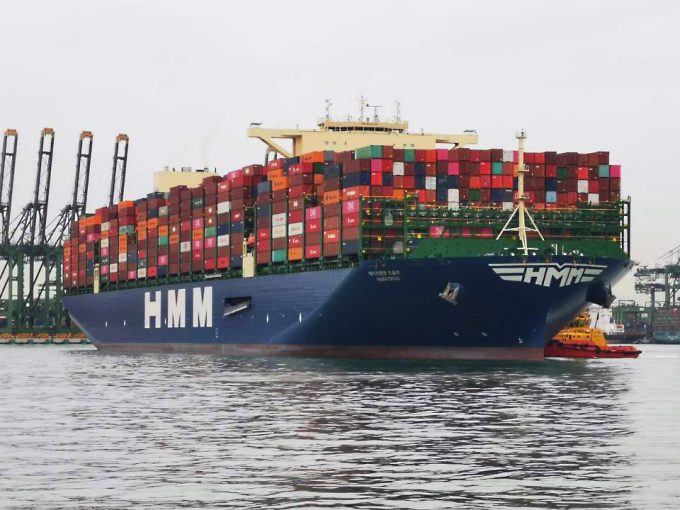Container spot rates have peaked as all major trades see prices fall
There was more evidence in this week’s container port freight markets that peak prices on ...
TFII: SOLID AS USUALMAERSK: WEAKENINGF: FALLING OFF A CLIFFAAPL: 'BOTTLENECK IN MAINLAND CHINA'AAPL: CHINA TRENDSDHL: GROWTH CAPEXR: ANOTHER SOLID DELIVERYMFT: HERE COMES THE FALLDSV: LOOK AT SCHENKER PERFORMANCEUPS: A WAVE OF DOWNGRADES DSV: BARGAIN BINKNX: EARNINGS OUTODFL: RISING AND FALLING AND THEN RISING
TFII: SOLID AS USUALMAERSK: WEAKENINGF: FALLING OFF A CLIFFAAPL: 'BOTTLENECK IN MAINLAND CHINA'AAPL: CHINA TRENDSDHL: GROWTH CAPEXR: ANOTHER SOLID DELIVERYMFT: HERE COMES THE FALLDSV: LOOK AT SCHENKER PERFORMANCEUPS: A WAVE OF DOWNGRADES DSV: BARGAIN BINKNX: EARNINGS OUTODFL: RISING AND FALLING AND THEN RISING

More than 90% of HMM’s seafaring union members voted to strike on Sunday and, if a resolution is not reached, the 453 union members are threatening to resign en masse tomorrow and apply to join Swiss-Italian rival MSC.
HMM’s seafaring and shore-based staff have expressed dissatisfaction over “a meagre” salary increment, despite the company achieving record profits last year, thanks to tight shipping capacity and logistics disruptions caused by Covid-19.
Their grievance stems from an eight-year salary freeze only lifted this year after HMM’s financial struggles culminated in a government bailout when Korea Development Bank (KDB) swapped debt for equity in 2016.
The staff’s unions are demanding a 25% wage hike and bonuses amounting to 1,200% of their salaries.
But HMM management is offering 8%, a bonus of 300% of salaries and a productivity incentive equating to 200%. KDB, HMM’s largest shareholder, is reportedly reluctant to accede to the demands.
An HMM spokesman told The Loadstar: “Negotiations between the management and the labour union are still under way to reach an agreement. Both sides are having a continuing dialogue on this matter and still doing their best for a settlement.”
The Loadstar understands that MSC is offering a salary 2.5 times what HMM is paying, equating to a monthly salary of $13,000-$14,000 to chief officers and a $5,000 for deckhands.
If the strike goes ahead, seafarers on HMM ships scheduled to arrive in Busan tomorrow would disembark in groups, while those supposed to board in their stead will refuse to produce tests stating they are free of Covid-19, a requirement for embarkation.
In July, MSC advertised for Korean seafarers with manning experience on ultra-large containerships. HMM is the only Korean carrier with such vessels and it was clear the advertisements targeted its crew members.
Korea’s Ministry of Oceans and Fisheries (MOF) is now “undertaking contingency planning procedures”, fearing a logistical crisis reminiscent of Hanjin Shipping’s collapse in October 2016, which immobilised its ships, causing many containers to be delayed before being transferred to HMM and alliance partners.
Hanjin’s collapse caused Korean container shipping capacity to plunge from 1.05m teu in early 2016 to 460,000 teu at the end of that year. And if HMM, which has a capacity of 850,000 teu, were to be incapacitated by the first industrial action in its 45-year history, there would be chaos.
The MOF has formed a task force, led by director of shipping and logistics Jeon Jae-woo to “maintain essential business functions and prepare support measures in case of emergency”.
The ministry has said that HMM was on course to achieve a record performance this year and is urging the management and unions to work together “in the nation’s interests” and to consider the threat logistics bottlenecks present to shippers.
Local media reports suggested SM Line, the only other ocean-going Korean carrier, could carry HMM cargo if required, but given the shortage of ships, there is a limit as to how much relief SM could offer.
Comment on this article